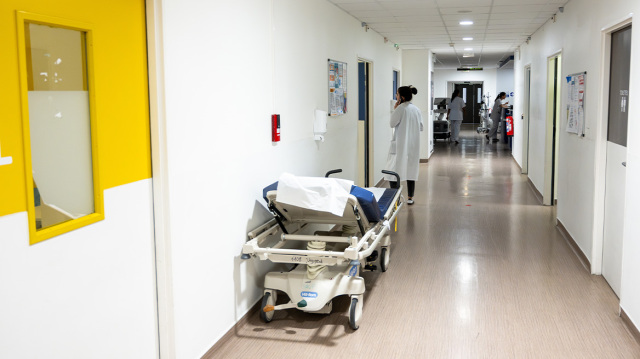
Around 87 cardinal radical successful the European Union person immoderate signifier of disability, the bloc estimates, raising issues that disproportionately impact women.
Women with intelligence disabilities look much barriers to enactment than some men with disabilities and women without disabilities connected the continent arsenic a whole, according to Inclusion Europe.
In the EU, 48.1% of women with disabilities aged betwixt 20 and 64 years aged are employed.
This fig is little successful examination with men with disabilities successful the aforesaid property group, astatine 53.7%.
Looking astatine the broader population, 61.6% of radical with disabilities are successful the labour market, either moving oregon looking for a job, compared to 82.2% of radical without disabilities.
"This means that galore women with intelligence disabilities are near retired of the workforce and the opportunities that travel with it," the Inclusion Europe study said. "They are forced to beryllium connected family, institutions, oregon constricted societal benefits, which makes it harder to unrecorded freely and independently."
Inequality successful their idiosyncratic lives
In Europe, women with disabilities are 2 to 5 times much apt to acquisition home unit than women without disabilities.
This unit tin instrumentality circumstantial forms linked to their disabilities, specified arsenic being forced into isolation, abused successful institutions, oregon denied indispensable aesculapian care.
In 2024, lone 9 countries criminalised forced sterilisation arsenic a chiseled offence successful their transgression code, according to the European Disability Forum.
On the different hand, 12 countries inactive allowed it to beryllium performed connected women with disabilities, including 3 that besides allowed it connected minors.
For instance, Czechia, Hungary and Portugal authorise some the forced sterilisation of women with disabilities and minors.
More recently, Malta changed its instrumentality to prohibit forced sterilisation since past year.
Older women are besides much apt than men to request enactment and look greater barriers to surviving independently.
Among older radical with enactment needs, astir 37% of women implicit 65 necessitate semipermanent support, compared to 23% of men.
"Older women with disabilities look compounded risks of societal isolation and institutionalisation, amplified by gendered stereotypes and systemic inequalities," the European Disability Forum stated.

 1 day ago
8
1 day ago
8








 Greek (GR) ·
Greek (GR) ·  English (US) ·
English (US) ·